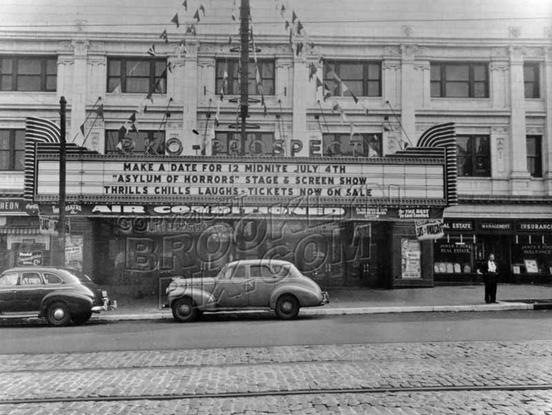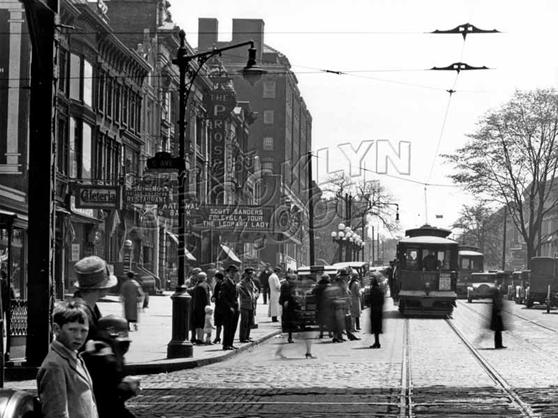

|
Pittsburgh Area Theatre Organ Society, Inc. |

|
Here is a quote from the July 28, 1989 issue of the New York Times: ...But, here as elsewhere, some eyesores stubbornly resisted change. For Eighth Street, the problem was the rear portion of the 75-year-old Keith-RKO Prospect Theater, a cavernous structure that fronts on Ninth Street, a shopping thoroughfare, but continues onward through the block to Eighth. The theater was built in 1914 on the site of a former synagogue and three apartment buildings. It had 2,500 seats, boxes on two levels and its stage played host to the major vaudeville acts of the era, said Michael R. Miller, president of the Theater History Society of America. The Marx Brothers, the Three Stooges and Burns and Allen were all said to have performed there. Eventually, like most vaudeville theaters, it was turned into a movie house. It closed in the late 1950's as attendance declined with the arrival of television.
And another quote from the February 19, 1989 issue of the New York Times: The 80-year-old RKO Keith's Prospect Theater in the Park Slope section of Brooklyn, where many actors and vaudevillians started their careers, is itself taking on a new role. The 2500-seat theater, which once featured the Marx Brothers, the Three Stooges, Burns and Allen and other stars of pre-electronic entertainment, is being converted with an existing supermarket into the 19-unit Park Plaza Condominium. The residential units in the building have either one- or two-bedrooms and range in price from $154,000 to $207,000, with monthly charges of $158 to $217. The units range in size from 750 to 1,200 square feet. The building, which has entrances at 300 Eighth Street and 329 Ninth Street, is situated between Fifth and Sixth Avenues, two blocks from the Fourth Avenue station of the F and R subway lines. The site is only a short walk from the Grand Army Plaza and Prospect Park. Al Schreiber and Jacob Bouganim, owners of the Consumers Food supermarket, which has occupied the ground floor for 22 years, entered into a partnership with a local developer, Gary Rosen, to convert most of the theater to residential condominiums and the store to a commercial condominium, with business continuing during the renovations. Adding to the complications was that workmen had to cut through brick walls two feet thick to install windows for the apartments. The supermarket owners bought the theater in 1967 after it closed, used part of it for their market and left the remainder vacant. The developers expect renovation of the property is to be completed this spring. |
|
History of Prospect Theatre |



|
Photo from 1950 |
|
Photo from 1928 |